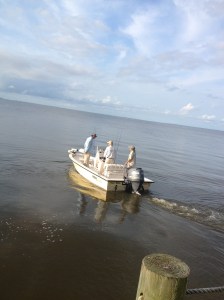
It’s been over six weeks since I last reported on Ralph and me—the longest I’ve ever gone—not because so much is happening or so little, but because I have not been sure what there is to say. We are treading water though in separate pools. I find myself living increasingly my own life. The few friends I’ve made despite covid are single women. I care for my grandkids at their house. He’s not lost more ability

Ralph, now adjusted to his new meds and his docile covid self, spends most of his time sitting in a chair reading by the window in our sunroom. He seldom uses the phone and the conversations are shorter and shorter. He likes quiet, his diminished interest in listening to radio logical since he really hasn’t listened to what he hears for a while. Getting him to take walks is harder and harder. He rarely bothers to walk the extra steps to his “office.” Ralph still likes the almost-four-year-old’s almost daily visits, but pays him barely a moment’s attention before he’s back to his dogs and his books. He reads voraciously, anything I hand him, the longer the better. He says he truly enjoys the reading although he acknowledges that he retains nothing the moment he puts the book down. And he reads quickly—funny, since pre-diagnosis he was a slow reader who retained ever single word and nuance—so it is hard to keep him in books especially since going to the library is not something I’m doing during Covid.
So for Christmas Ralph received from me a mixed box set: War and Peace and The Brothers Karamazov. Should keep him until at least February. For Christmas I received from Ralph whatever I felt like buying myself, and I didn’t stint. I am wearing new pants, shirt, and sweater as I type.
The thing is, Christmas more or less brushed by Ralph this year. In the past, even and maybe especially since his diagnosis, he looked forward to our blow out Christmas celebrations with a childlike anticipation. But this year he was oblivious, which was just as well since there was no blow out happening anyway. I debated whether to bother decorating our not fully furnished house, but ended up pulling out my boxes of Santas. I bought a tree already on a stand so Ralph didn’t have to mess with it. He said it looked nice, once, and never glanced at the tree again. Which was fine with me. The almost-four-year-old grandson loved my Santas and also could stand for ages in front of the tree deciding which ornaments were his favorites. I spent evenings sipping tea in front of the tree alone with David Sedaris.

Xmas eve morning Ralph looked up from his reading to ask why I was carrying a pile of presents out to the car.
“Christmas”
“I thought we did Christmas.
“No we did Thanksgiving last month. Now it’s Christmas.”
He nodded and returned to his book, no further questions asked. But he came along that afternoon to eat Chinese take out with our daughter’s family, our watered down version of our usual Xmas eve blowout. He was patient but bored and missing his dogs so I drove him home as soon as he finished eating, then returned alone to hang out finishing preparing for Santa’s visit.
The next morning I brought Ralph coffee early because I was dying to see the grandson’s reaction to receiving the present Santa was bringing, bright yellow digger.”
“Anything on our schedule today?”
“It’s Christmas morning.”
“I thought we did Christmas already.”
“Last night was Christmas Eve. We’re going over to open presents.”
The three-year-old’s Christmas joy was so infectious that it even perked up Ralph who parked in a chair where we brought him food and gifts to open.
The next morning, it was chilly when he got up. I suggested he wear his new flannel shirt and vest.
“What vest?
“The one you got for Christmas.”
“When was Christmas?”
I know someone reading this is thinking, how sad. But the thing is, Ralph is very content from moment to moment. And frankly, thanks to an increasing ability to compartmentalize and ignore, so am I. At least for now.


